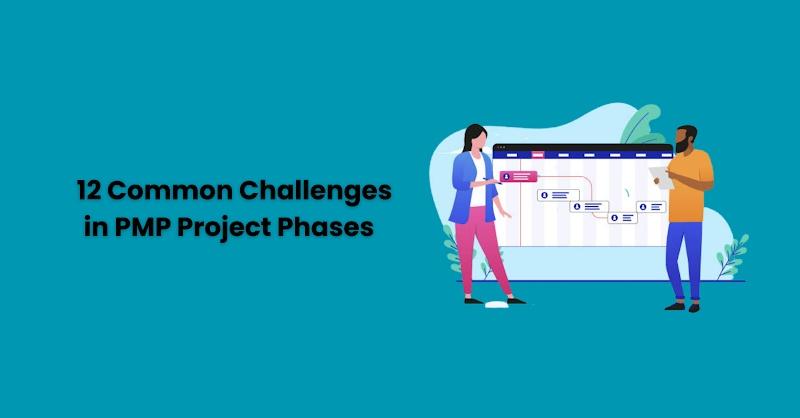Managing a project is always a risky process and it could be more similar to navigating through a maze. Achieving project success requires understanding and learning how to overcome these challenges, regardless of experience level or aspiration to become a project manager. Project Management Professional (PMP) certification leads you through this complex maze helping you to overcome these challenges. But even with the best PMP Tools and PMP Training, project managers frequently encounter a wide range of difficulties as their projects move through different phases. In this blog we’ll explore the twelve typical challenges that project managers run into during the five stages of a project—initiation, planning, execution, monitoring and controlling, and closing.
Unclear Project Objectives
It is critical to establish specific project objectives during the start-up phase. A clear grasp of the goals will make it easy for the project to get off course. In order to help project managers align stakeholders and create reasonable expectations, PMP training strongly emphasises the significance of meticulous project beginning.
Inadequate Stakeholder Engagement
Effectively involving stakeholders is a constant struggle. Planning communications and doing stakeholder analyses can be aided by PMP tools. Stakeholder management techniques are covered in PMP training, which aids project managers in resolving disagreements and maintaining stakeholder commitment to the project’s success.
Incomplete Scope Definition
Project scope creep can occur when there is inadequate scope definition. While PMP tools can help create extensive scope statements and Work Breakdown Structures (WBS), PMP training gives project managers the skills they need for meticulous scope planning and management.
Unrealistic Timeframes
Unrealistic project schedules are a surefire way to go wrong. The Critical Path Method (CPM) and other tried-and-true scheduling methods are encouraged to be used in PMP training. PMP tools offer scheduling and timeline management features to help keep projects on schedule.
Resource Constraints
Effective resource management is essential. While PMP technologies can help with resource scheduling and tracking to ensure the proper resources are accessible when needed, PMP training provides insights into resource allocation and optimisation.
Poor Risk Management
Project failure may result from ignoring dangers. Risk identification, assessment, and mitigation planning are highlighted in PMP training. Tools from PMP can assist project managers in analysing risks and keeping an eye out for possible dangers.
Communication Breakdown
Project management is built on effective communication. Stakeholder involvement and communication tactics are included in PMP training, and PMP technologies help centralise project communication to increase efficiency and transparency.
Quality Control Issues
Ensuring and preserving quality is a constant struggle. While PMP tools provide quality control and assurance tools, assisting project managers in identifying and quickly resolving problems, PMP training teaches quality management techniques.
Scope Creep
Project scope creep can sneak up on you and result in delays and overspending. Change control procedures are emphasised in PMP training, and PMP tools can help with controlling and tracking scope changes.
Budget Overruns
The fight to keep the project within budget always continues. While PMP technologies give budget tracking and forecasting capabilities to help project managers successfully monitor spending, PMP training imparts cost management skills.
Resistance to Change
Stakeholders or other members of the team may be resistant to change. Change management techniques are covered in PMP training, and PMP tools can help approve and document change requests.
Inadequate Closing Procedures
Project closure done improperly might result in unfinished business and unresolved problems. The significance of closure activities is emphasised in PMP training. PMP tools can help create thorough project closure checklists and paperwork.
Conclusion
The challenges in project management cannot be avoided. Given the appropriate knowledge gained from PMP training and the backing of PMP tools, project managers may confidently tackle these challenges. Overcoming these 12 typical obstacles can make all the difference in a project’s success or failure, from start to finish. Therefore, get the PMP certification, prepare yourself with the necessary resources and navigate through the project management maze. Remember that every obstacle you face can lead to your professional project management success.
